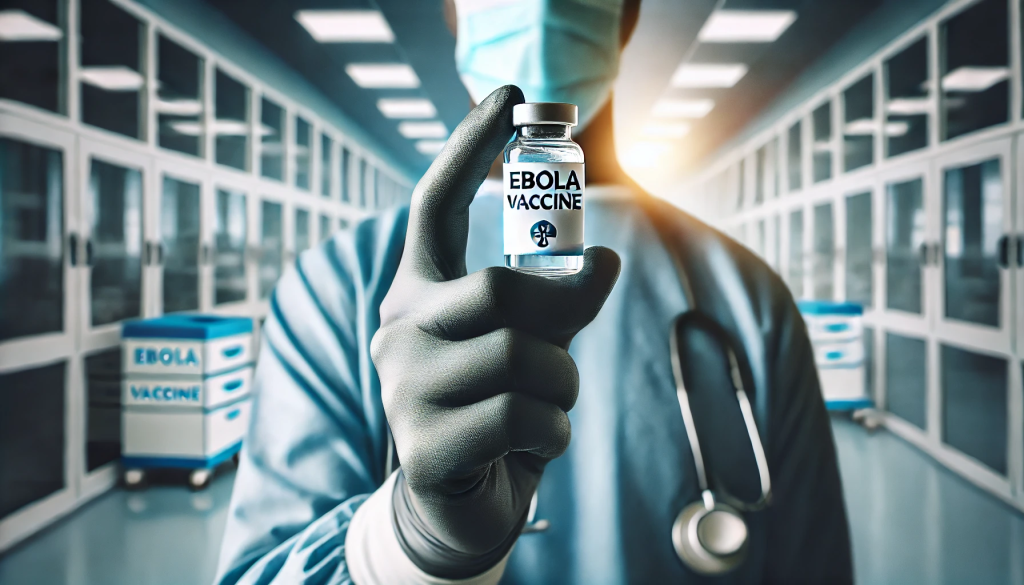Why Early Misdiagnosis Makes Ebola Even More Dangerous
Imagine waking up with a high fever, body aches, and severe fatigue. You might assume it’s just the flu or maybe malaria, especially if you live in or have traveled to certain regions. But what if it were something far deadlier?
This is the terrifying reality of Ebola virus disease (EVD), one of the world’s most lethal viral infections, often misdiagnosed in its early stages. The confusion arises because Ebola’s initial symptoms closely mimic common illnesses like malaria, typhoid fever, or even COVID-19.
But why is Ebola so frequently mistaken for other diseases? How does this affect treatment, outbreak control, and survival rates? In this article, we’ll uncover the truth about Ebola, the dangers of misdiagnosis, and what makes it one of the most feared viral infections in modern history.
What Is Ebola? Understanding One of the Deadliest Viruses
Ebola virus disease (EVD) is a severe, often fatal illness caused by the Ebolavirus from the Filoviridae family. First identified in 1976 near the Ebola River in the Democratic Republic of Congo, the virus has led to multiple deadly outbreaks, with some reaching pandemic-level threats.
🦠 Ebola’s Fatality Rate: Depending on the strain, mortality rates range from 25% to 90%, making it one of the deadliest viruses known to humans.
🔬 How Does Ebola Spread? Unlike airborne viruses like influenza or COVID-19, Ebola spreads through direct contact with:
- Blood or bodily fluids (saliva, urine, sweat, vomit, breast milk, semen) of an infected person
- Contaminated surfaces or objects (needles, medical equipment)
- Infected animals, particularly fruit bats, monkeys, and chimpanzees
Unlike common viral infections, Ebola is not easily transmitted through casual contact, but its high fatality rate and lack of a universal cure make it incredibly dangerous.
Why Is Ebola Often Misdiagnosed?

One of the biggest challenges in controlling Ebola outbreaks is its early-stage similarity to other common diseases. This can delay diagnosis, increase the risk of further infections, and make outbreaks harder to contain.
1️⃣ Early Symptoms Resemble Other Illnesses
In the first few days, Ebola presents symptoms nearly identical to:
| Ebola Symptoms | Similar Diseases |
|---|---|
| Fever | Malaria, Typhoid Fever, Dengue Fever |
| pandemic-level | Meningitis, Influenza |
| Muscle & Joint Pain | Chikungunya, COVID-19 |
| Sore Throat | Strep Throat, Tonsillitis |
| Vomiting & Diarrhea | Food Poisoning, Cholera |
Because of these overlapping symptoms, patients are often misdiagnosed, delaying life-saving isolation and treatment.
2️⃣ Ebola Symptoms Progress Rapidly
Unlike the flu or malaria, which often improve with proper treatment, Ebola escalates into severe complications within days.
⚠ Later-Stage Symptoms Include:
- Uncontrollable bleeding (internal & external)
- Organ failure
- Shock & coma
By the time these critical symptoms appear, it is often too late for effective treatment, leading to higher mortality rates.
3️⃣ Lack of Advanced Diagnostic Testing in Some Regions
In West Africa, Central Africa, and other Ebola-prone regions, many hospitals lack rapid testing kits. Patients are often diagnosed based on symptoms alone, increasing the likelihood of misdiagnosis.
🚨 Case Study: The 2014 West African Ebola Epidemic
- Over 28,000 infections, more than 11,000 deaths
- Many early cases were mistaken for malaria or typhoid fever, leading to delayed quarantine measures
- Outbreak spread across multiple countries, including Guinea, Liberia, and Sierra Leone
These factors highlight why rapid diagnostic testing and early suspicion of Ebola are crucial in stopping major outbreaks.
How Is Ebola Diagnosed and Treated?
🔬 Diagnosis: The Importance of Early Testing
Ebola cannot be diagnosed solely by symptoms, so doctors use specialized laboratory tests like:
✔ Polymerase Chain Reaction (PCR) Test – Detects Ebola virus RNA
✔ ELISA (Enzyme-Linked Immunosorbent Assay) – Identifies Ebola antibodies
🚨 Why Early Testing Matters: Delays in Ebola diagnosis can mean the difference between survival and death. Early isolation reduces the spread and increases treatment success rates.
💉 Is There a Cure for Ebola?

Currently, there is no universal cure for Ebola virus disease. However, new treatments and vaccines have significantly improved survival rates.
✔ Monoclonal Antibody Therapies (Inmazeb, Ebanga) – Block the virus from attacking cells
✔ Supportive Care – IV fluids, oxygen therapy, blood transfusions
✔ Experimental Drugs – Some antivirals have shown promise in trials
🚀 The Good News: The ERVEBO vaccine, approved by the FDA in 2019, has shown high effectiveness in preventing Ebola infection among high-risk individuals.
Ebola vs. COVID-19: How Do They Compare?
Since Ebola and COVID-19 are both viral outbreaks, people often compare their dangers. But these diseases are very different in how they spread and affect patients.
| Factor | Ebola | COVID-19 |
|---|---|---|
| Transmission | Direct contact with fluids | Airborne (coughing, sneezing) |
| Incubation Period | 2-21 days | 2-14 days |
| Fatality Rate | 25-90% | ~1-3% |
| Vaccine Available? | Yes, but limited | Yes, widely available |
📌 Key Takeaway: Ebola is far deadlier than COVID-19 but much harder to spread, making containment strategies crucial.
Ebola: Disease Statistics in the U.S. and Europe

While the majority of Ebola virus cases occur in African countries, there have been confirmed cases in the U.S. and Europe, especially during the 2014-2016 outbreak.
The table below presents detailed statistics for the U.S. and Europe, including the number of confirmed cases, mortality rates, sources of infection, and government response measures.
📊 Ebola Virus Statistics in the U.S. and Europe (as of 2024)
| Region | Outbreak Years | Confirmed Cases | Mortality Rate (%) | Source of Infection | Response Measures |
|---|---|---|---|---|---|
| USA | 2014-2016 | 4 cases | 25% (1 out of 4 died) | Patients who traveled from West Africa | Hospitalization in isolation units, emergency treatment |
| Spain | 2014 | 1 case | 0% (patient survived) | Infected nurse who treated a patient | Complete patient isolation, emergency disinfection |
| Italy | 2015 | 1 case | 0% (patient survived) | Doctor infected while working in Sierra Leone | Treatment at a military hospital in Rome |
| United Kingdom | 2014-2015 | 3 cases | 0% (all survived) | Healthcare workers returning from West Africa | Strict isolation, use of experimental drugs |
| France | 2014 | 1 case | 0% (patient survived) | Military doctor infected in Africa | Immediate hospitalization and emergency therapy |
| Germany | 2014-2015 | 3 cases | 0% (all survived) | Imported cases from Africa, including healthcare workers | Patient isolation, use of experimental treatment |
| Sweden | 2019 | 1 suspected case (not confirmed) | 0% | Suspected case with Ebola-like symptoms | Emergency testing, quarantine, medical diagnosis |
🔍 Key Takeaways from the Statistics
✔ Most cases in the U.S. and Europe were imported from Africa.
✔ Healthcare workers are at the highest risk of infection.
✔ Modern protective measures and medical treatments have prevented widespread outbreaks in developed countries.
✔ Strict isolation protocols and early symptom monitoring are essential to contain the virus and prevent further transmission.
✔ The mortality rate in Western countries is significantly lower than in Africa due to high-quality healthcare and early diagnosis.
🚨 Important! While the number of Ebola cases in the U.S. and Europe remains low, global outbreaks still pose a major threat due to international travel and delayed detection of the virus.
📢 Do you think governments in the U.S. and Europe should invest more in Ebola research and pandemic prevention? Share your thoughts in the comments!
Final Thoughts: Why You Should Stay Informed About Ebola
✔ Ebola remains one of the deadliest viruses on the planet
✔ Early symptoms mimic common diseases, leading to dangerous delays in diagnosis
✔ New vaccines and treatments offer hope, but outbreaks are still a threat
✔ Staying informed and supporting global health efforts can help prevent future pandemics
📢 What do you think? Should governments invest more in Ebola research and global outbreak prevention? Let us know in the comments!
















